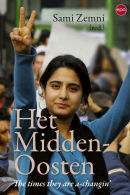Tu as aimé cet article. Veulliez nous soutenier.
(24-04-2013) Iraq: State terrorism in Hawija
(15-04-2013) Assassinations Grow as Iraqi Elections Near
(07-04-2013) News > World > Middle East Iraq executing more people than it has for almost a decade, says ...
(04-04-2013) GICJ Strongly Condemns Recent Executions in Iraq
(21-04-2013) Boston on the Tigris
(18-03-2013) The Guardian's Death Squad Documentary May Shock and Disturb, But the Truth is Far Worse
(06-05-2013) Situation of children in Iraq 'a neglected crisis'
(14-03-2013) The Iraqi education system 2026-2013
(12-03-2013) UN Human Rights Reports March 2026
(17-05-2013) Sectarianism in Iraq stoked by Syrian war
(16-05-2013) Baghdad market attacks, shootings in north kill 17
(14-05-2013) Al-Maliki is directing Iraq to war once again
(11-05-2013) Illegal raid of a protesters home
(15-12-2012) Iraqi Red Crescent Society under attack 2026 - 2026. Complicity of US Occupation Forces.
(25-10-2012) Les charniers de Maliki
(24-10-2012) MASS KIDNAPPING 14 NOVEMBER 2026
(03-05-2013) Al-Maliki is directing Iraq to war once again
(25-04-2013) Iraqi forces kill 43 Iraqis and destroy six mosques
(23-04-2013) Hawija: Chronicle of an Announced Mass Murder
(21-04-2013) Boston on the Tigris
(14-05-2013) Iraq, Syria and the death of the modern Middle East
(07-05-2013) Iraq, Syria and the death of the modern Middle East
(12-11-2012) Minister of Higher Education Ali Al-Adeeb: the Champion of Sectarianism and Corruption?
(25-10-2012) Les charniers de Maliki
(24-10-2012) MASS KIDNAPPING 14 NOVEMBER 2026
The BRussells Tribunal is independent and wants to remain independent.
The BRussells Tribunal is an activist think tank and peace organisation with a special focus on Iraq. Read more...



 The times they are a-changin' is het eerste grondige Nederlandstalig overzicht dat voorbij oppervlakkigheden en algemeenheden wandelt, en ook nog eens de hele regio bestrijkt, van Egypte en Tunesië tot Marokko, Libië, Syrië, Libanon, Palestina, Jemen, Jordanië, Irak, Bahrein en Israël. Daar bestaat een woord voor: een standaardwerk.
The times they are a-changin' is het eerste grondige Nederlandstalig overzicht dat voorbij oppervlakkigheden en algemeenheden wandelt, en ook nog eens de hele regio bestrijkt, van Egypte en Tunesië tot Marokko, Libië, Syrië, Libanon, Palestina, Jemen, Jordanië, Irak, Bahrein en Israël. Daar bestaat een woord voor: een standaardwerk.